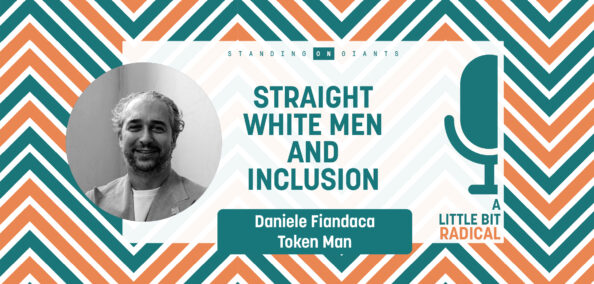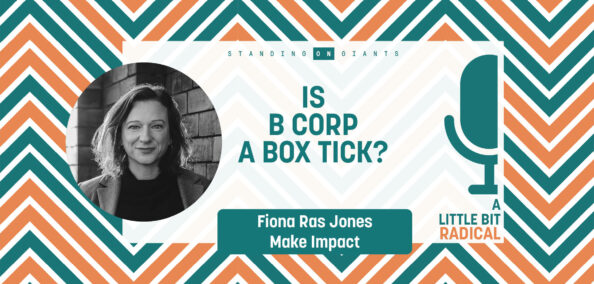This is a post from the Standing on Giants archive by Carla Arend.
From my experience as a Community Manager, and from my research on the profession over the years, something that comes up often is how easy it is to mix our professional and personal lives into one big thing. Some companies and colleagues even brag that they are always connected and available – don’t get me wrong, I am (or was) just like that. I believe it happens because most of us are really passionate about people, and hence, about the communities in which we work.
In the following list, I don’t want to tell you what to do (or rather, not do), but express my personal opinion on how I believe we can sustain a long and happy career in community management.
The Common Community Management Mistakes
Mistake #1 Taking It Personally
The first one may seem obvious, but it’s an easy trap to fall into. As Community Managers, we need to avoid taking attacks by community members personally. Most of us (hopefully) love and believe in the brands we work for and we really want all the members to love it too, but we can’t just assume that they will (even if they’re long-standing members). There will be disagreements, there will be haters, there will be moments when we want to just scream and reply to a thread using words that we wouldn’t say in front of our grandmas. It’s hard not to let it get us down or feel defensive, especially if the comments are directed at us (even though the member’s anger is because of the brand). We must stay strong, professional and respectful towards our communities no matter what they throw at us. My tip is, as soon as you realise that it’s getting to you and you’re beginning to take it personally, take a step back. I’d suggest going for a walk, chatting to a colleague/flatmate, having a cup of tea, doing a different task and coming back to it later. Depending on how urgent it is to respond, it may be best to just sleep on it. Nothing good will come from an angry reply and it will only damage both your and the brand’s reputation.
Mistake #2 Being Always Available
In my opinion, this mistake is the trickiest to avoid. As much as we love our jobs, our community members need to know that we are humans with a life and set working hours. If we are not consistent in our working hours and don’t follow an expected schedule, our community will expect us to be available any time, any day. Of course, there will need to be exceptions. A crisis can come up on a Saturday at 10pm and we might be required to put in hours outside of our working day, or our members may organise an event for Sunday afternoon that we want to join, or sometimes we just can’t help ourselves and want to check in to see how our dear community is doing. In the last case, I would say you can, by all means, read what’s happening in the community if you wish, but avoid taking any action if it can wait until the next working day. Doing that will help us set limits with our communities and also with our managers/clients and, believe me, this will help us have a proper rest and do a better job the day after.
Mistake #3 Being Inconsistent
A community is an ongoing project and is not our family group on WhatsApp, where we can send a fun meme and mute it for 8 hours. As a community manager we have to be consistent in our participation, not only in terms of new content creation, but also in how we deal with situations. Beyond just being consistent with how we impose our community guidelines (which is definitely important), we should make sure we respect a certain community management routine. I’m not saying we should have an unbreakable hourly schedule, but find a way to make sure that all tasks are covered and nothing is left behind. Try to set expectations for your private and public participation and, most importantly, behave consistently towards members.
Mistake #4 Bad-mouthing Community Members
Being rude about others behind their backs is a bad habit and, personally, I find it hard to fully trust somebody that does so (I’d hate to know what they say about me…). It’s no different in communities, and we have even more of a responsibility not to do it when it is our job to make the community a safe and fun environment. Of course, we are all human and we have all met, at some point in our careers, one (or several) community members who were the definition of unreasonable. But, as a community manager one of the silliest mistakes we can make is to gossip about a member to another member, or bring private community issues into our group of families and friends. We’re better than that. Our role is to keep the place as healthy as we can and not turn it into a soap opera. If there is something that a specific member is doing that we disagree with, and if it goes against the community rules, we should take the appropriate action. However, if the member just grates on you as they have a different way of approaching the world, the best thing we can do is show them respect, in the same way we would hope they would for us.
Mistake #5 Neglecting Engagement
Once the community is set up and running successfully, we tend to relax a little bit. We already have a couple of superusers helping us to make sure everything is ok, so we start focusing on different things and end up neglecting our most important task: paying attention to members and engaging with them. As the community matures, the bond between superusers and Community Managers tends to get stronger, but we must keep paying attention to details, such as the skills and interests of different members of the community, and we must keep building strong and new relationships.
Mistake # 6 Allow Overselling
It’s ok to share our brand’s products and services in the community sometimes, it’s one of the reasons some companies have a community, isn’t it? But it is not ok if we do that all the time. When we try using our communities as a sales channel and use marketing strategies to do so, we are changing the purpose of the community and our community won’t like it. Members of a forum-based community are not there exclusively because they want to buy product A or B, they are there to share opinions and connect with others. Be honest with the other teams in the business (normally the marketing and sales lot) if they are trying to inject too much sales or marketing content in the community. At the end of the day, you know your community best and you can judge what it’s ready to take and what will push members away.
Mistake # 7 Giving Orders
A community normally has a set of guidelines and it is part of our job as Community Managers to make sure that they are being followed by our members. However, it is not our job to be naming and shaming members publicly for every single mistake they commit. That is a one-way ticket to a disengaged community whose members are scared to post in case they’re told off. Reach out privately to educate members, so they don’t feel exposed. It’s also important to not let the power go to your head, just because you have the ability to use admin functions and make changes to the community and its posts. We should educate members if they’ve broken the guidelines, but do so without being patronising and just telling them off.
Beyond just dealing with individuals who are misbehaving, communication is key. When the company decides to change something in the forum structure for example, one of the best things to do is be honest with the community and consult members before you act. Keeping a nice and open communication with members makes a huge difference when going through changes.
Mistake # 8 Making Up Data
I know this mistake is quite common among community managers but it is one that we all should really avoid. Don’t just assume how many posts a day your community will have in 3 months’ time when your director asks if you don’t have a proper KPI plan. Avoid guessing the reply rate of your community (if you haven’t checked the report) when a colleague asks during the team meeting. Don’t just make up how many minutes your active users are spending online when the bounce rate analytics person asks! It can be overwhelming for some of us when the monthly report date arrives, but it is so important to dig into the data and turn our amazing results into charts and tables that can be easily digested by senior management. I would say it is a huge mistake to not keep track of the community growth and then analyse the numerical impact that infrastructure changes can have into the community performance.
Conclusion
I hope that these 8 points listed above help you reflect on your own possible pitfalls. We’re all human and make mistakes, but the beauty of making mistakes is that we can really learn from them and improve our community management skills as we go.
Do you have any mistakes you believe a community manager must avoid to add to this list? Please share so we can keep adding to it!
I hope you enjoyed this post. Take a look at our blog for more where that came from. You can also check out our solutions page to find out more about what we do here at Standing on Giants.




